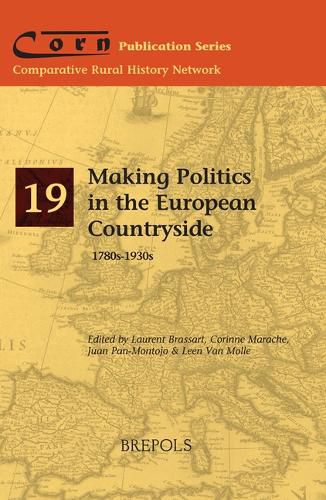Readings Newsletter
Become a Readings Member to make your shopping experience even easier.
Sign in or sign up for free!
You’re not far away from qualifying for FREE standard shipping within Australia
You’ve qualified for FREE standard shipping within Australia
The cart is loading…






This book offers a fresh look at the so-called ‘politicisation’ of the European countryside, from the late eighteenth century to the 1930s, in the context of waning monarchies, rising and staggering parliamentary nation states, and fascist and communist dictatorships. The concept ‘politicisation’, however, is misleading. The book argues that Europe’s rural societies were far from immobile spaces, set in routines, that had to be politised from outside and against the grain. The thirteen articles in the volume demonstrate that, instead of politicisation from scratch, political thinking and acting of country dwellers - from Scandinavia to Spain, from Moravia to France - evolved in a constant, dialectical relationship with their urban, regional and national surroundings: they reacted to wars, revolutions and shifting borders, their political loyalties changed, so did their political agendas, their repertoires of collective action and their role in the establishment, successes and failures of political parties, separate agrarian parties included.
$9.00 standard shipping within Australia
FREE standard shipping within Australia for orders over $100.00
Express & International shipping calculated at checkout
This book offers a fresh look at the so-called ‘politicisation’ of the European countryside, from the late eighteenth century to the 1930s, in the context of waning monarchies, rising and staggering parliamentary nation states, and fascist and communist dictatorships. The concept ‘politicisation’, however, is misleading. The book argues that Europe’s rural societies were far from immobile spaces, set in routines, that had to be politised from outside and against the grain. The thirteen articles in the volume demonstrate that, instead of politicisation from scratch, political thinking and acting of country dwellers - from Scandinavia to Spain, from Moravia to France - evolved in a constant, dialectical relationship with their urban, regional and national surroundings: they reacted to wars, revolutions and shifting borders, their political loyalties changed, so did their political agendas, their repertoires of collective action and their role in the establishment, successes and failures of political parties, separate agrarian parties included.